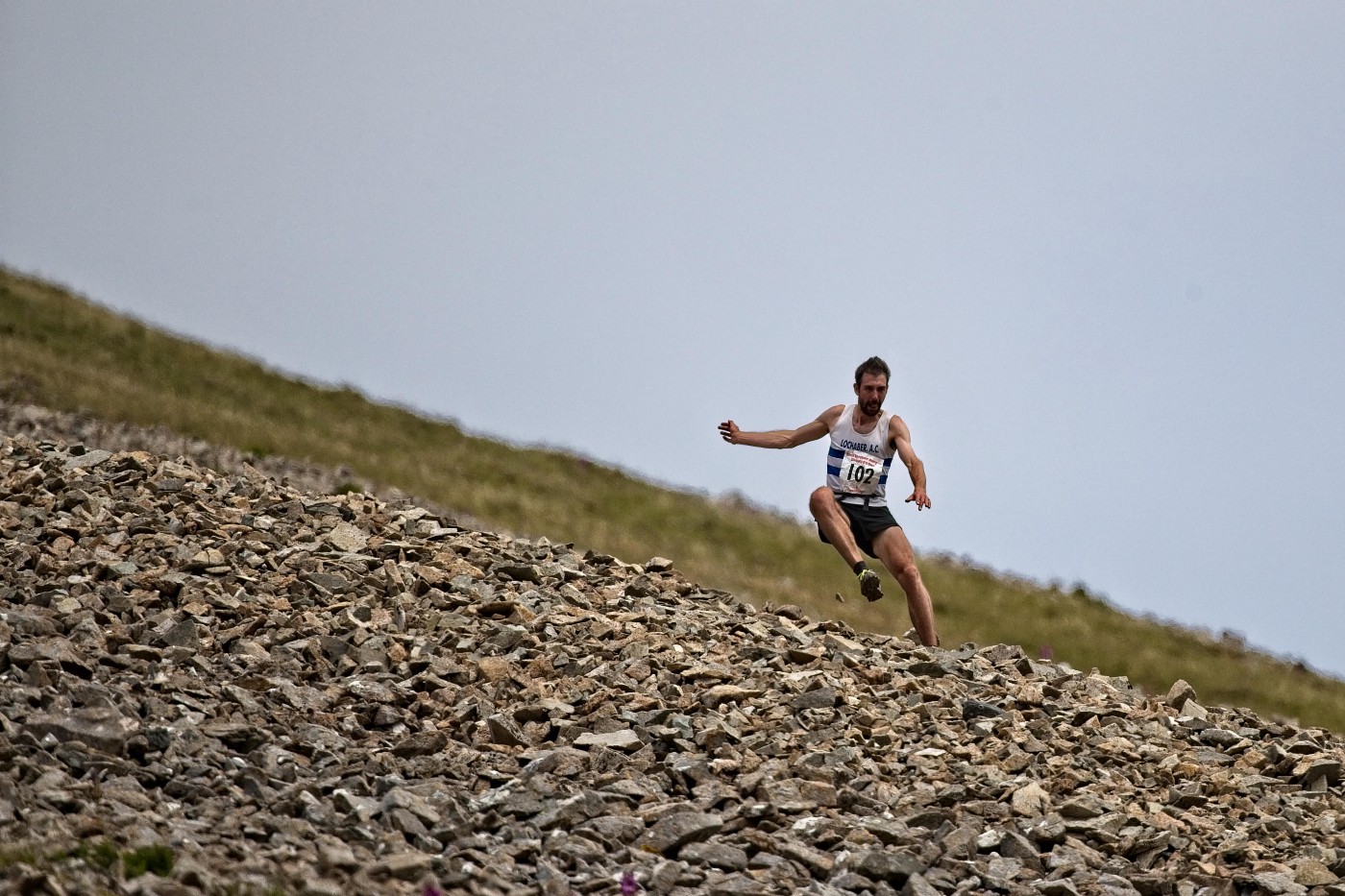A guest blog post by Finlay Wild for Trees Not Tees. Finlay is a hill runner based in Fort William. He has won the Ben Nevis Race ten times and is a former British Fell Running Champion. He regularly races across the UK but is most at home when running or mountaineering in the Highlands. He holds several records including the Cuillin Ridge Traverse on Skye, the Jura Fell Race and the Tranter Round.
As a teenager I loved going to music gigs. It was thrilling: the anticipation, the travel from Fort William to the bright lights of Glasgow, the huge venue hall crammed with thousands of people. And the music of course — that was what we came for and we inhaled it. The tickets were often fairly expensive for a school boy but it seemed well worth it for the experience and the memories. Years later I still enjoy thinking back to those times. After the gig, everyone debarked into the street. Your ears were ringing and you were tingling with excitement and adrenaline.
Sometimes, if the band had been a favourite, you might buy one of their t-shirts. There were official ones at a merchandise stand inside the venue, and bootleg sellers working out of black bags in the street. Occasionally I would splash out on one and wear it proudly at every opportunity, but more often I couldn’t come up with the extra cash. That was okay though, as I put my Walkman on and replayed the sounds of my aural religion.
Fast forward to 2020 and I get my kicks not in the booming gig hall but in the wide open outdoors. I still like music, but I love to run. Much has been written about the freedom of moving in the mountains, roving along ridgelines high above everyday life’s banal demands. Organised races aren’t a requirement for this, but do offer a specific target and often allow us to push on to the very top of our abilities. We get excited about races, the anticipation can be both pleasurable and, sometimes, daunting. Remembering those music gigs there are certain parallels: the anticipation; the journey there; the thrilling tension crowded in waiting for the race — or guitars — to start. These are experiences that we cherish.
On the finish line I am handed a goodie bag and a t-shirt. Everyone is. This is becoming more common in sporting events across the board. Dare I say, we have even subconsciously come to expect to ‘get something’. It’s not hard to see why this is happening in our materialistic world: goods are getting cheaper, the choice and specificity always expanding, a throw-away culture of convenience.
We need clothes. It’s not even a stretch to say that people who run need running clothes. But how many race t-shirts do I need? Certainly I already have too many, the spoils reaching double figures from three races alone over the years. The same number again have gone to charity shops after a meagre handful of uses. Recycling is important, but not producing an unnecessary product in the first place is scores of times better for the environment. Cotton t-shirt production uses thousands of litres of water per tee and requires dyes and chemicals in the process. Significant inputs of energy and crude oil are required if made from synthetic materials.
What’s the big deal? It’s only a t-shirt! People like to wear shirts which link them to a tribe, the ‘finisher’ logo a badge of pride. To some degree we as runners are defined by our proudest race results. For a lot of people, these factors are bound up with self worth and finishing a particular race can be the culmination of a long road of training and focus. I’m not saying don’t wear race t-shirts, just that we need to step away from the freebies.
We can’t say no if it’s free and that’s the problem. It’s an ingrained response. But step back a minute, do I need this? How was it produced and what were the environmental costs of production? I’m sure I’m not the only one who has accepted a garish free tee that I immediately knew I would never actually enjoy wearing!
We’re back at my favourite band’s gig — it was amazing! I’m going to buy a t-shirt because I like the design and I want to tell the world that I love this band! The music was the main event of course, and it was unforgettable. A tee is just fabric but the band’s logo transforms it into a talismanic embodiment of my teenage identity — it will get worn to death from constant use. A free race t-shirt that I don’t really want or need doesn’t do this. We need to stop wasting resources and this is an easy win — I’ve got plenty of tees to do me for years. If I want any more there are many races which sell them. T-shirt money saved by race organisers could be given to charity, deducted from entry fees or used on projects like tree planting.
Putting an end to free event tees won’t save the world, but it’s a step in a cascade of actions which we can all take as concerned individuals in the face of climate emergency. Let’s keep the music playing — we love to run — but wasteful practices need to stop.


